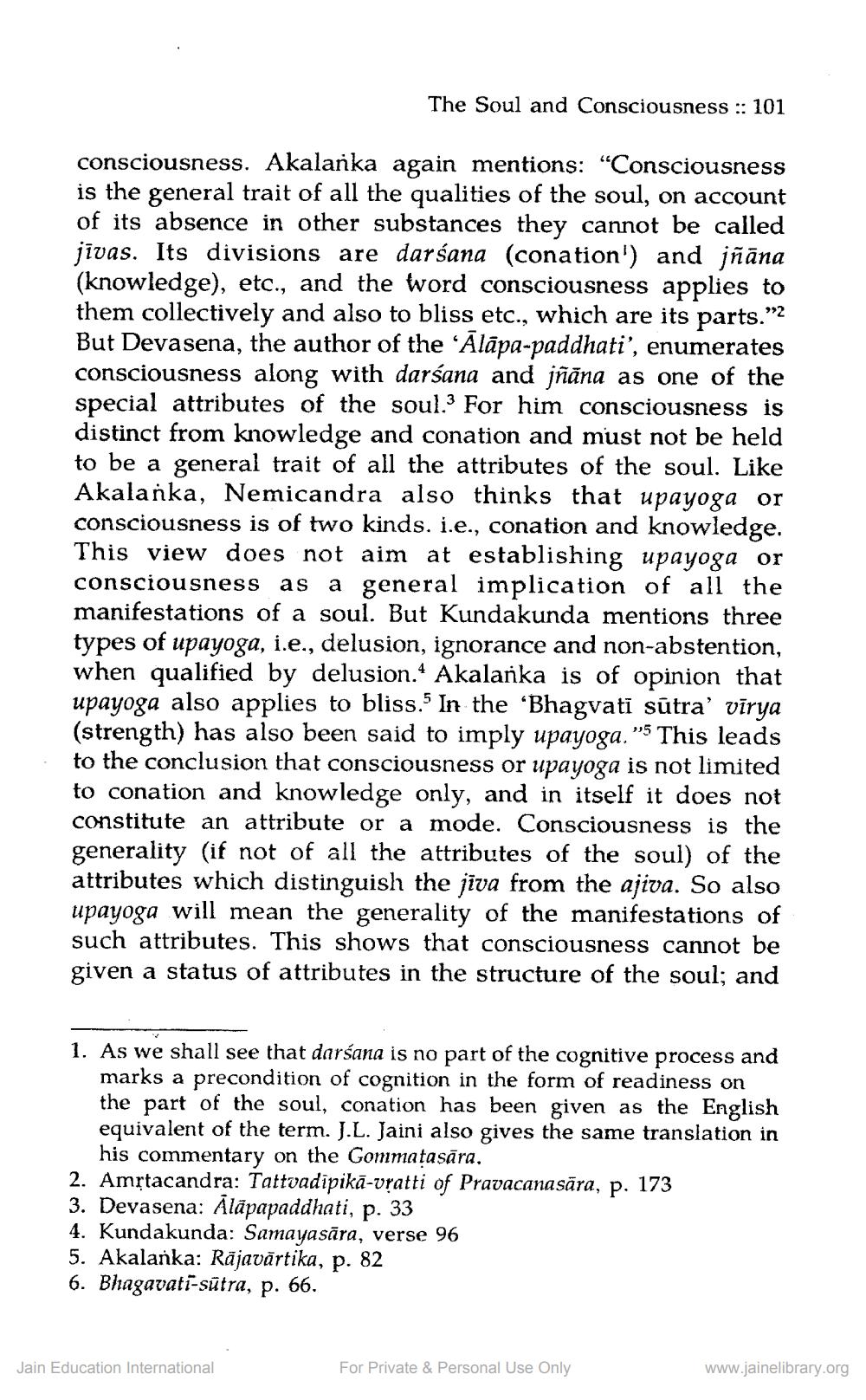________________
The Soul and Consciousness :: 101
consciousness. Akalanka again mentions: “Consciousness is the general trait of all the qualities of the soul, on account of its absence in other substances they cannot be called jīvas. Its divisions are darśana (conation') and jñāna (knowledge), etc., and the word consciousness applies to them collectively and also to bliss etc., which are its parts."? But Devasena, the author of the 'Alāpa-paddhati', enumerates consciousness along with darśana and jñāna as one of the special attributes of the soul.For him consciousness is distinct from knowledge and conation and must not be held to be a general trait of all the attributes of the soul. Like Akalanka, Nemicandra also thinks that upayoga or consciousness is of two kinds. i.e., conation and knowledge. This view does not aim at establishing upayoga or consciousness as a general implication of all the manifestations of a soul. But Kundakunda mentions three types of upayoga, i.e., delusion, ignorance and non-abstention, when qualified by delusion. Akalanka is of opinion that upayoga also applies to bliss. In the 'Bhagvatī sūtra' vīrya (strength) has also been said to imply upayoga.” This leads to the conclusion that consciousness or upayoga is not limited to conation and knowledge only, and in itself it does not constitute an attribute or a mode. Consciousness is the generality (if not of all the attributes of the soul) of the attributes which distinguish the jīva from the ajiva. So also upayoga will mean the generality of the manifestations of such attributes. This shows that consciousness cannot be given a status of attributes in the structure of the soul; and
1. As we shall see that darśana is no part of the cognitive process and
marks a precondition of cognition in the form of readiness on the part of the soul, conation has been given as the English equivalent of the term. J.L. Jaini also gives the same translation in
his commentary on the Gommatasāra. 2. Amrtacandra: Tattvadipikā-vratti of Pravacanasāra, p. 173 3. Devasena: Alāpapaddhati, p. 33 4. Kundakunda: Samayasāra, verse 96 5. Akalanka: Rajavārtika, p. 82 6. Bhagavati-sútra, p. 66.
Jain Education International
For Private & Personal Use Only
www.jainelibrary.org




